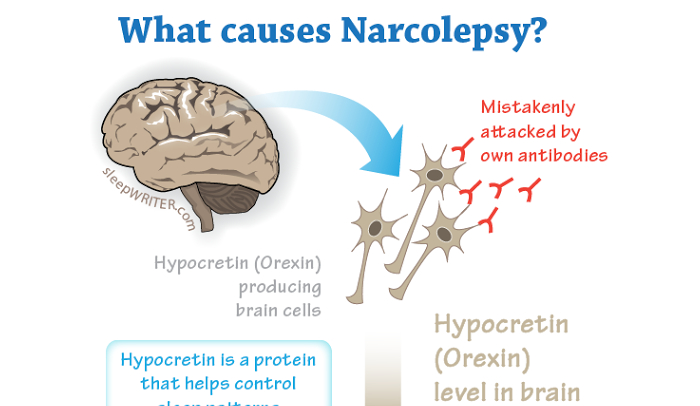
| Age | Sleep Needed (hrs.) |
|---|---|
| 0-2 month | |
| 3-11 month | |
| 1-3 yrs. | |
| 3-5 yrs. | |
| 5-10 yrs. | |
| 10-17 yrs. | |
| Adults |
The table above shows the amount of sleep someone should get for their age group. With busy schedules and everyday tasks people are deprived of the sleep they need to make their day the fullest. Not getting a full night's rest can be dangerous in situations such as driving to your job or falling to concentrate on more than one task.
Sleep is controlled by two different body systems, sleep/awake homeostasis and circadian rhythm. Sleep/awake homeostasis tells your body when to sleep and helps your body maintain sleep for the amount of hours you need for the amount you were awake.This creates a balance between being awake and being asleep. Circadian rhythm It is common for people to especially feel this lack of sleep around 2-4 am and 1-3 pm. This is called a circadian rhythm. Circadian rhythm affects different age groups in different ways. Adults will feel the circadian rhythm around 1-3 pm and 2-4 am, while teens experience sleep phase delay.
Sleep phase delay is common in teens and is caused by their circadian rhythm. They feel more alert around 11 pm, making it hard for them to go to sleep and maintain healthy sleeping habits. They have early school schedules that disrupt their sleep and don't allow them to reach the recommended hours of sleep for a teenager. Though sleep phase delay can benefit those who possibly work later night shifts, but for those who have early schedules this disorder can lead to people suffering chronic insomnia.
Insomnia is separated into two different groups and two different stages. Insomnia is produced in two different ways, primary and secondary. In primary a person may have difficulty sleeping but this disorder is not caused by a health condition the person may have. In secondary insomnia it is quite opposite, as the persons insomnia is caused by a health condition such as sleep apnea. Insomnia is also put in two stages, chronic and acute insomnia. acute insomnia is short-term while chronic insomnia can last a long time and can also recur.
Causes of Insomnia
Insomnia doesn't always come from other health problems, making it more likely that anyone could be a victim of insomnia. Some things that can cause you to develop acute insomnia are:
Causes of chronic insomnia include:
If you feel you may possibly have insomnia, keep a journal tracking your sleep hours and how you feel during the day. If you see that your sleep is irregular and affecting your day negatively then consult your doctor for help.
Fitbit Sleep Pattern Fitbit Sleep Pattern
This is someone's sleep pattern as shown through their fitbit. This is one way to journal your sleeping patterns in order to determine if you have insomnia.
Restless Leg Syndrome
Restless leg Syndrome is most common in middle age adults. It will cause a burn, itch, or tingle in the sufferers lower legs as they are falling asleep. To lower the chances of RLS reoccuring as you fall asleep you should avoid caffeine or alcohol.
Sleep Walking
Sleepwalking is most likely to interfere in a young child's sleep. While the brain continues to sleep the body will be awake for short periods of time, ranging from five to ten minutes. Sleepwalking is linked to stress, illness, or medication and the sleepwalker is notorious for not remembering any of their events while walking.
Non-24-Hour Sleep-Wake Syndrome
This condition sets your body clock on a 25 hour clock instead of a 24 hour one. This causes you to go to sleep earlier and earlier each night and to wake up later and later each day. This condition affects those who are blind and aren't able to see night and morning cues such as the sunrise and sunset.
Narcolepsy
Narcolepsy is one of the most dangerous sleeping disorders. Though it is rare to have this disorder, those that have it suffer greatly in doing their daily routine. The person suffering from this disorder can fall asleep at anytime making it extremely dangerous to drive to work or just to a store. They feel really fatigued during the day and suffer from hallucinations, fainting, sleep paralysis, and muscle deteriorating.
Advance Sleep Phase Disoder
ASPD is when your body clock is set to rise earlier than normal. Though the person with this condition may need sleep till 7 am their body will wake up at 3 am instead. This most likely affects seniors.
Jet Lag
Jet lag sets off a persons internal clock, making them have a disrupted sleep as they travel. Jet lag varies based on the time zone your in, your age, and the direction of which you traveled. People suffering from jet lag can experience fatigue, headache, nausea, and not having the abiltity to fall asleep.
Here are some tips on how to defeat jet lag the next time you travel.
Sleep Apnea
About 4% on men and 2% of women in America suffer from sleep apnea. Sleep apnea is where your airway is temporarily blocked, causing the sufferer to have a stressful sleep. People with this condition have a hard time noticing it, since it happens while they are asleep. Friends and family who sleep under the same roof as that person may notice it before the suffer due to the loud snoring that occurs as they try to inhale and exhale. People with this condition fell drowsy during daytime hours, an inability to concentratwe, moodiness, and depression.

This is a diagram of a normal airway while sleep(the left) vs one that is being blocked while the person sleep(the right).